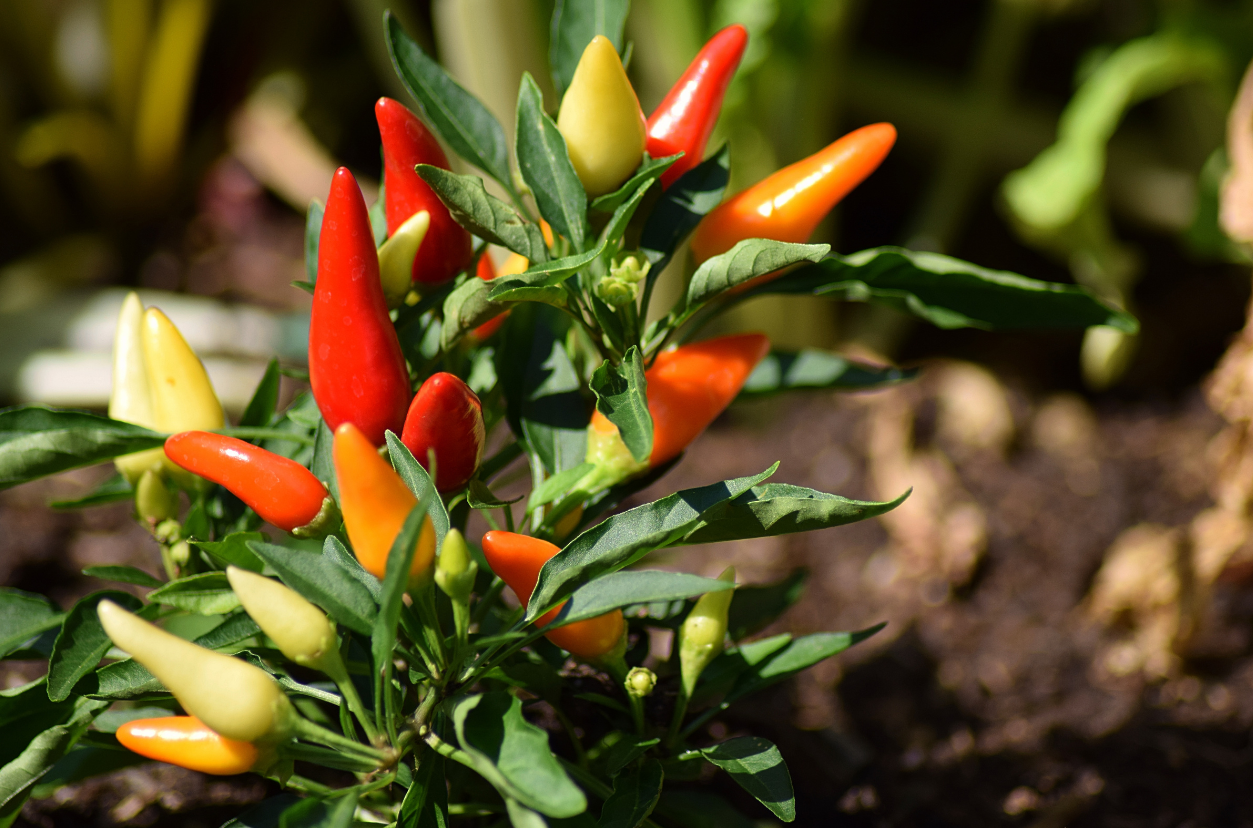Best Fertilizers for Peppers: A Comprehensive Guide to Boost Your Harvest
Best Fertilizers for Peppers: A Comprehensive Guide to Boost Your Harvest
Blog Article
Organic Vs. Synthetic Fertilizers: Which Is Best for Supporting Healthy And Balanced Pepper Plants?
In the world of nurturing healthy pepper plants, the selection between natural and synthetic plant foods stands as a pivotal choice with far-reaching implications. While both choices purpose to provide necessary nutrients to sustain plant growth, the nuances of their effect on the dirt, plant health, and the environment stimulate a discussion that echoes throughout the gardening area. Comprehending the distinctive advantages and prospective risks of each plant food type is essential for pepper farmers seeking to enhance their yields while preserving an eco-conscious and sustainable approach.
Benefits of Organic Plant Foods
Organic fertilizers supply an environmentally-friendly and lasting method to beneficial pepper plants, providing vital nutrients without making use of synthetic chemicals. These natural plant foods are obtained from organic sources such as garden compost, manure, bone meal, and seaweed, advertising dirt wellness and biodiversity. Unlike synthetic fertilizers, natural choices release nutrients slowly, making sure a stable and balanced supply for pepper plants to flourish.
One considerable benefit of organic plant foods is their capacity to boost soil structure and water retention. By improving dirt health, natural plant foods advertise helpful microbial activity, which aids in nutrient uptake by pepper plants. In addition, natural plant foods reduce the threat of chemical run-off, shielding water resources from contamination and guarding the atmosphere.
Furthermore, organic plant foods add to long-term dirt fertility by advertising the growth of useful dirt organisms. These microorganisms aid break down organic issue, launching nutrients in a form that is conveniently obtainable to pepper plants. best fertilizers for peppers. By promoting a healthy and balanced soil ecosystem, natural fertilizers support sustainable pepper cultivation practices that benefit both plants and the environment
Disadvantages of Synthetic Fertilizers
Synthetic fertilizers, in comparison to their natural counterparts, position various disadvantages when made use of to nurture pepper plants, affecting both plant health and wellness and environmental sustainability. One significant downside of artificial plant foods is their tendency to leach nutrients from the soil quickly.
Moreover, the overuse of artificial plant foods can add to water pollution. Excess fertilizers not taken in by plants can remove into water bodies, resulting in eutrophication, where algae blooms diminish oxygen degrees in the water, hurting water life. Artificial fertilizers are generally obtained from non-renewable sources, such as fossil gas, contributing to carbon emissions and ecological degradation throughout their manufacturing.
Nutrient Absorption Comparison
Reliable nutrient absorption plays a vital role in the overall wellness and growth of pepper plants. When contrasting organic and synthetic plant foods in regards to nutrient absorption, organic plant foods have the benefit of offering a more balanced and slow-release resource of nutrients (best fertilizers for peppers). Organic fertilizers consist of a range of macro and trace elements that are not only beneficial for the plants however additionally promote healthy and balanced soil microbial task, which aids in nutrient uptake. On the various other hand, artificial fertilizers usually offer a fast launch of nutrients, which can result in seeping and runoff, resulting in lower nutrient absorption prices by the plants.
Furthermore, organic fertilizers enhance soil structure and water retention capacity, allowing pepper plants to access nutrients a lot more effectively. This enhanced soil high quality assists in origin advancement, allowing far better nutrient absorption. Synthetic fertilizers, although at first enhancing plant growth because of their high nutrient focus, might prevent long-term nutrient absorption by degrading dirt wellness over time.
Environmental Impact Considerations

On the various other hand, artificial plant foods, although often even more focused and right away available to plants, can have harmful results on the atmosphere otherwise used properly (best fertilizers for peppers). Their manufacturing needs high power inputs, causing greenhouse gas emissions and adding to climate adjustment. In addition, the overflow of excess artificial fertilizers can contaminate water resources, resulting in eutrophication and harming water environments.
Ideal Fertilizer Practices for Peppers
When feeding pepper plants, optimizing nutrient uptake and lessening ecological influence are key considerations. To accomplish this, it is vital to follow best plant food techniques customized to the specific needs of pepper plants. One vital method is to do a dirt test before applying any type of plant foods. This examination can establish the pH degree of the dirt and recognize any nutrient deficiencies, directing you in selecting the most appropriate plant food formula.
Another essential method is to fertilize pepper plants at the ideal time. Usually, peppers gain from getting plant food at planting and after that once more when they start to flower. Over-fertilizing can bring about nutrition discrepancies and harm the plants, so it is vital to adhere to suggested application rates.
In addition, selecting a balanced plant food with an NPK ratio that suits pepper plants' needs is basic. his response Organic fertilizers, such as garden compost or manure, can be exceptional choices as they launch nutrients slowly and improve dirt structure with time. Nevertheless, synthetic plant foods can offer a fast nutrient boost when required. Inevitably, integrating synthetic and natural fertilizers deliberately can assist nurture healthy and balanced pepper plants while reducing ecological effect.
Final Thought

Organic plant foods supply a sustainable and environmentally-friendly technique to beneficial pepper plants, offering crucial nutrients without the use of synthetic chemicals. Unlike artificial fertilizers, organic choices launch nutrients slowly, making certain a stable and well balanced supply for pepper plants to prosper.
Artificial plant foods, in contrast to their organic counterparts, posture various drawbacks when made use of to nurture pepper plants, impacting both plant health and wellness and ecological sustainability. When contrasting synthetic and organic plant foods in terms of nutrient absorption, natural plant foods here have the benefit of providing a more balanced and slow-release source of nutrients.Moreover, natural fertilizers improve soil structure and water retention capacity, allowing pepper plants to access nutrients much more efficiently.
Report this page